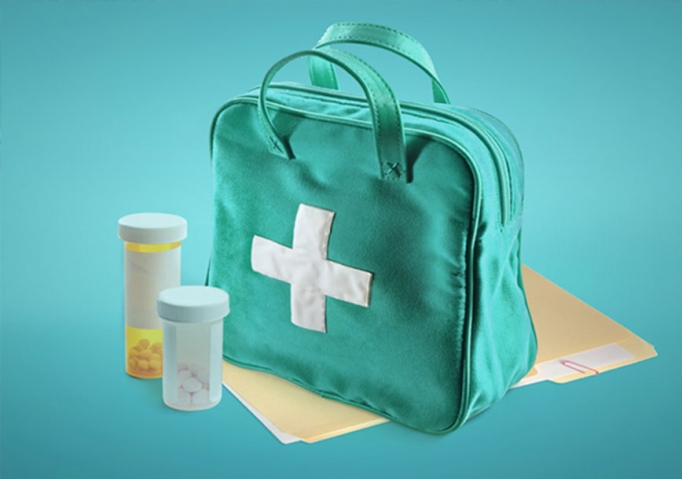8 Tips to Medically Prepare You For a Hurricane

Hurricanes can bring on a lot of uncertainty and confusion. McLeod Health wants to make sure you are as medically prepared as possible. It is essential to have an emergency plan in place so that you can respond quickly.
There are plenty of tips and tricks to prepare your home and property for a hurricane, but medical needs are often overlooked. Here are eight tips to help you keep your medical records organized in case of an emergency:
1. Medical Contact List – Make sure you have a list of phone numbers for your medical facilities, pharmacy, doctors, case manager, and service providers. Share a copy with friends and family.
2. Medication – FEMA suggests that you have at least a 1-week supply of medications on hand. If possible, a two-week supply is even better.
a. Pharmacy List of Medications – Your pharmacist should have an updated list of the medications you are currently taking. Make sure your medications are linked to another pharmacy location.
b. Printed List of Medications – Prepare a list of your current prescription medicine with dosages and medical devices to keep with your other records.
3. Medical Records – Print out hard copies and have up to date electronic versions. A portable thumb drive should include:
a. List of your medications
b. A list of your allergies, health history, medical insurance cards, Medicare or Medicaid card.
c. A note from your doctor for Durable Medical Equipment, Consumable Medical Supplies and assistive devices. Have the style and serial numbers of the support devices and where you bought them if possible.
4. Medical Alert Bracelet – Make sure to wear your bracelet if you have one.
5. Stock up on Medical Supplies – Have a two-week supply of medical supplies such as blood testing strips, bandages or insulin.
6. Online Resources – Write down important information, like usernames and email addresses, so that you can access your insurance account online. Be sure to have your passwords in a secure location.
7. Special Needs – FEMA provides information on preparing for a disaster for people with disabilities and other special needs.
8. Eyesight – In an emergency, an extra pair of glasses or contact lenses can be critical.
Share these tips with a friend or loved one and let them know whom to contact in case of an emergency. This list is simply a guide to help you medically prepare for a hurricane. Refer to other state, federal, and local resources to make sure you are fully prepared.
-
McLEOD REGIONAL MEDICAL CENTER FLORENCE
843-777-2000 -
McLEOD DARLINGTON
843-777-1100 -
McLEOD DILLON
843-774-4111 -
McLEOD LORIS
843-716-7000 -
McLEOD SEACOAST
843-390-8100 -
McLEOD CHERAW
843-537-7881 -
McLEOD CLARENDON
803-433-3000



-
McLEOD REGIONAL MEDICAL CENTER FLORENCE
843-777-2000 -
McLEOD DARLINGTON
843-777-1100 -
McLEOD DILLON
843-774-4111 -
McLEOD LORIS
843-716-7000 -
McLEOD SEACOAST
843-390-8100 -
McLEOD CHERAW
843-537-7881 -
McLEOD CLARENDON
803-433-3000
 Find a Doctor
Find a Doctor  Locations
Locations  Services
Services